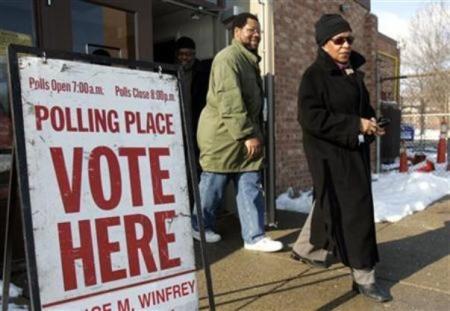5 Historical Omissions in Dinesh D'Souza's Film 'Hillary's America'

4. Internal Divisions of the Democratic Party
Throughout the film the Democratic Party is portrayed largely as a monolithic entity, with an unbroken line of goals throughout its history.
D'Souza gives little attention to any of the divisions or competing factions within the national party. At one point he mentions Franklin Roosevelt lacking enough votes for the New Deal, leading him to curb programs designed to help African-Americans. But this matter was not further pursued.
And yet, like any major party, divisions abound within the Democratic Party. During the twentieth century, these increasingly played out between the national party and its Southern wing.
D'Souza makes no mention of FDR's fielding of primary challengers to Southern Democratic congressmen who opposed his progressive agenda.
In the 1940s, when the Congress of Industrial Organizations launched a failed attempt to unionize much of the South, their enemies tended to be members of the Democratic Party.
During the Great Depression, Southern Democrats' opposition to New Deal policies and labor unions made them allies of pro-business Northern Republicans. This alliance, called the "Conservative Coalition," received no mention in D'Souza's film.
5. Party Realignment

A concern some had when the film was first announced was that it would ignore what is often called "the switch." According to this historical claim, during the 1960s the debate over Civil Rights prompted Southern Democrats to become Republicans and African-Americans to go from largely Republican to largely Democrat.
D'Souza denounces the concept of "the switch", labeling it a "LIE" in big letters. He argued that the shifts in the electorate came over a long period of time and had basically nothing to do with racism.
D'Souza was correct that the political shifts were already beginning to occur during the Great Depression. This was partly because the economic opportunity promised by the New Deal led African-Americans to increasingly vote Democrat.
However, D'Souza ignored events in the 1960s that helped exacerbate this shift including the 1964 Barry Goldwater presidential campaign and the "Southern Strategy."
Republican presidential hopeful Goldwater stirred the ire of many African-American leaders, including most notably Dr. Martin Luther King Jr., for opposing the Civil Rights Act of 1964.
While angering civil rights activists, Goldwater garnered the support of pro-segregation Southern Democrats, with him winning five Southern states. King endorsed his Democratic opponent, President Lyndon Johnson.
Four years later in 1968, Republican presidential candidate Richard Nixon was even more successful, winning six southern states via what became known as the "Southern Strategy."
The "Southern Strategy" involved appealing to white Southern Democrats, usually by expressing opposition to civil rights agenda items while not being overtly racist.
While not the only factor, the "Southern Strategy" contributed to the South switching from solid Democrat territory before 1964 to strong Republican territory by the 1990s.
In 2005, then Republican National Committee chairman Ken Mehlman officially apologized to the NAACP at a meeting for his party having used the strategy during and after Nixon's campaign.
"By the '70s and into the '80s and '90s, the Democratic Party solidified its gains in the African American community, and we Republicans did not effectively reach out," stated Mehlman.
"Some Republicans gave up on winning the African American vote, looking the other way or trying to benefit politically from racial polarization. I am here today as the Republican chairman to tell you we were wrong."





















